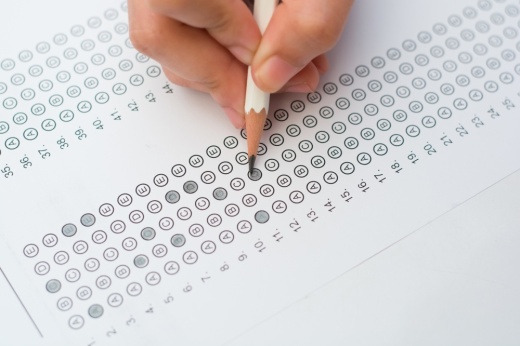According to the Texas Education Agency, early results show that 40% of eighth-graders statewide did not meet expectations in math in spring 2021, compared to 19% in spring 2019. For fifth-graders, 31% did not meet expectations in math for spring 2021, compared to 17% in spring 2019.
In Keller ISD, the number of eighth-graders who did not meet math expectations jumped from 9% in spring 2019 to 23% in spring 2021. Eighth-grade reading also saw an increase, with 24% not meeting expectations in spring 2021 versus 10% in spring 2019.
A similar trend is also observed at the fifth-grade level. For spring 2021 math, 21% of students in Keller ISD did not meet expectations, compared to 12% for spring 2019. Northwest ISD also experienced an uptick in students underperforming. The percentage of eighth-graders who did not meet expectations in reading went from 12% in spring 2019 to 19% in spring 2021. In math, the percentage not meeting expectations leapt from 8% in spring 2019 to 20% for spring 2021.
As for fifth-graders in NISD, there was an increase from 11% in spring 2019 to 23% in spring 2021 in students not meeting expectations in math.
During a Texas State Board of Education meeting June 23, TEA Commissioner Mike Morath spoke about the “academic damage” the pandemic has done to the state’s school system. Morath said he expects the final STAAR scores will be released on Monday or Tuesday of next week, but called the preliminary numbers “problematic.”
“What that means is that the name of the game for us, for the conceivable future, is how do we modify our systems—across all 1,200 school systems in the state of Texas—to increase the rate at which we accelerate learning,” he said.
One reason that students may have done poorly on the STAAR this year, according to Morath, was that they were being “exposed to below grade level material all year long,” which students could not control. He said under new requirements passed by the Texas Legislature this year, districts have to create a written plan for how they will accelerate learning for students that did not meet grade level in third, fifth and eighth grades.
“For students who are below grade level, that's what we have to do to get them caught up to grade level,” Morath said. “The number of students who are significantly below grade level is far higher this year than we've ever seen it before because of the academic impact of COVID.”
Keller ISD and Northwest ISD could not be immediately reached for comment.
William C. Wadsack contributed to this report.





